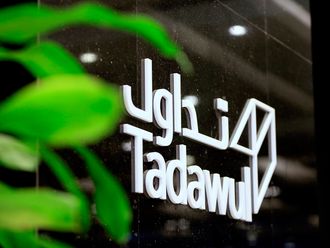Berlin: German 10-year government bonds posted their first weekly gain since the beginning of November as renewed concern over the region's most-indebted countries spurred demand for bunds as a haven.
The yield on the bund, Europe's benchmark government security, fell from near a seven-month high reached on December 16. Portuguese bonds declined as its credit rating was downgraded by Fitch Ratings, which also said it may cut Greece to non- investment grade. France's AAA rating was affirmed on December 23 by Standard & Poor's with a stable outlook. Spanish bonds rose.
"Worries over the periphery are still valid going into the New Year and that's been supporting core bonds," said Eric Wand, an interest-rate strategist at Lloyds Corporate Bank. "Without a dramatic surprise from EU policy makers, I can't see that situation altering."
The 10-year bund yield ended the week at 2.98 per cent, from 3.03 per cent on December 17, while the two-year yield declined to 0.96 per cent from 1.06 per cent. The Portuguese 10-year yield climbed to 6.84 per cent from 6.68 per cent, and the equivalent Irish yield gained 62 basis points to 9.22 per cent. The Spanish 10-year yield fell four basis points to 5.52 per cent.
Downgrade
Portugal's debt rating was downgraded one level on December 23 by Fitch Ratings to A+, which said the economy faces a "deteriorating" outlook as the government struggles to curb the euro region's fourth-largest budget deficit. The outlook is negative. The rating may be cut one or two levels by Moody's Investors Service, the company said on December 21.
Greece may have its credit rating cut to non-investment grade by Fitch Ratings within six weeks after a review of the nation's "fiscal sustainability," the agency said on December 21. Moody's slashed Ireland's credit rating by five levels on December 17 and said further downgrades are possible as the government struggles to contain losses in the country's banking system.
Fitch said there is a risk the European Union will need to rescue other euro member states after bailouts of Ireland and Greece.
"While the Eurozone's underlying credit fundamentals are stronger than current levels of risk pricing indicate, Fitch believes that the crisis is systemic in as much as it reflects concerns about the viability of the euro as well as country-specific vulnerabilities," the ratings company said. The euro will overcome the region's deficit crisis and support the stability of the international monetary system, Song Zhe, China's ambassador to the European Union, said on December 23.
Chinese Vice Premier Wang Qishan said on December 21 his nation had taken "concrete action" to help the European Union with its debt problems.
German bonds returned 6.1 per cent this year, compared with 5.4 per cent for US Treasuries, according to indexes compiled by Bloomberg and the European Federation of Financial Analysts Societies. Irish bonds handed investors a loss of 14 per cent, Greek bonds 20 per cent and Portuguese bonds 8.1 per cent, indices show.










